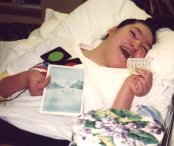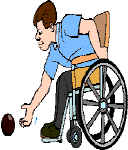The Cerebral Palsy Network
- Cerebral Palsy
- Hippo therapy
- Pediatric Stroke
- School Daze
- HBOT
- SDR
- Spasticity Management
- Cephalic Disorders
- CP & Aging
- BOTOX
Around CPN
Resource
Center
STARTLING
INFORMATION RECENTLY UNCOVERED BY DR. JAMES:
SURFACE OXYGEN (80% 02) IN PREMIES IS NOT THE CAUSE OF RETROLENTAL
FIBROPLASIA.
SLIDE I
Oxygen Treatment of Premature Babies and Cerebral Palsy
I of 16 children in 1950 to 1952 had cerebral palsy and 4 had retrolental
fibroplasia.
10 of 25 born in 1953-1955 had cerebral palsy and None had retrolental
fibroplasia (P<0.02)
Significance for increase in CP without additional oxygen (p<0.05)
significance of reduction of retrolental fibroplasia without additional
oxygen (p<0.02)
Alison D McDonald
Dev,, Med Child Neurol 1964-.6:313-314.
SLIDE 2
Oxygen Treatment of Premature Babies and Cerebral Palsy
Unfortunately it may prove impossible to prevent spastic diplegia by
increasing the ambient oxygen Concentration without causing retrolental
fibroplasia, and in that case some way of improving the blood flow to
vulnerable areas of the brain may have to be considered.
Alison D McDonald
Dev Med Child Neurol 1964-.6:313-314.
SLIDE 3
Oxygen Cerebral Palsy and Retrolental Fibroplasia
Szewczvk first suggest that retrolental fibroplasia was produced by
habituating a child to an enriched oxygen atmosphere and by too sudden
withdrawal.
If Szewczvk's theory was correct the disease in the early stage should
appear after the child's removal from a high oxygen environment: this is.
almost without exception, true.
Forrester RM
Dev Med Child Neurol 1964;6:648-650
SLIDE 4
Oxygen Cerebral Palsv and Retrolental Fibroplasia
The next logical step was to say, that if the retinopathy developed when
the child came out of oxygen the safest thing to do would be to put him
back in again. We used this technique in 17 cases.
The results were spectacular: in each individual case the retinal vascular
pattern having shown gross abnormalities. returned to normal.
Forrester RM
Dev, Med Child Neurol 1964:6:648-650
SLIDE 5
oxygen Cerebral Palsy and Retrolental Fibroplasia
In most cases a slow, reduction of oxygen and final return to atmospheric
concentration over a period of weeks was all that was necessary, but two
infants needed a third period of oxygen exposure because the disease again
became active.
Many of the infants were exposed to high oxygen tensions for very long
periods (the longest
were 93,88,85 and 83 days).
Twelve of these infants recovered with normal eyes and five had minor
permanent changes not causing blindness.
Forrester RM
Dev, Med Child Neurol 1964:6:648-650
SLIDE 6
oxygen Cerebral Palsy and Retrolental Fibroplasia
If one believes that oxygen has a direct toxic effect on the infant's
retina these surely would have been the infants who became blind for they
were all of very low birth weight, all had the early retinopathy and they
were all subjected to intensive and prolonged therapy.
Forrester RM
Dev, Med Child Neurol 1964-.6:648-650
A special thankyou to the countless Drs and children whom have made this research possible. All information contained within these pages are the sole property of the Dr.s and experts that have spent the countless hours researching for OUR CHILDREN. Please read each page of content and please contact your local congressmen and appropriate government officials today. Thankyou.
This site designed & maintained by Mystic Dawn Web Creations. The Cerebral Palsy Networkę1997/2003. All graphics are the exclusive property of CPN, unless otherwise indicated. Contact CPN at Cerebral Palsy Network for further information.
Last updated 03/24/03

Amanda the reason CPN was
started
CPN
Reunion 2003

CP
Research
What's happening Today with
Cerebral Palsy

Special
Olympics
What's happening with
Special Olympics in 2003

CP
& Education
What's happening with
Special Need and Education in 2003